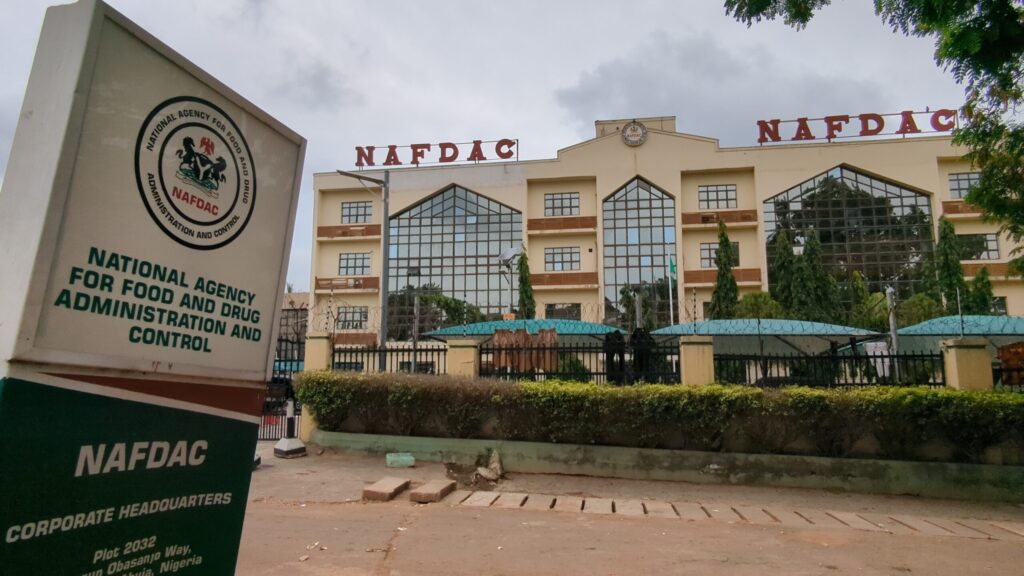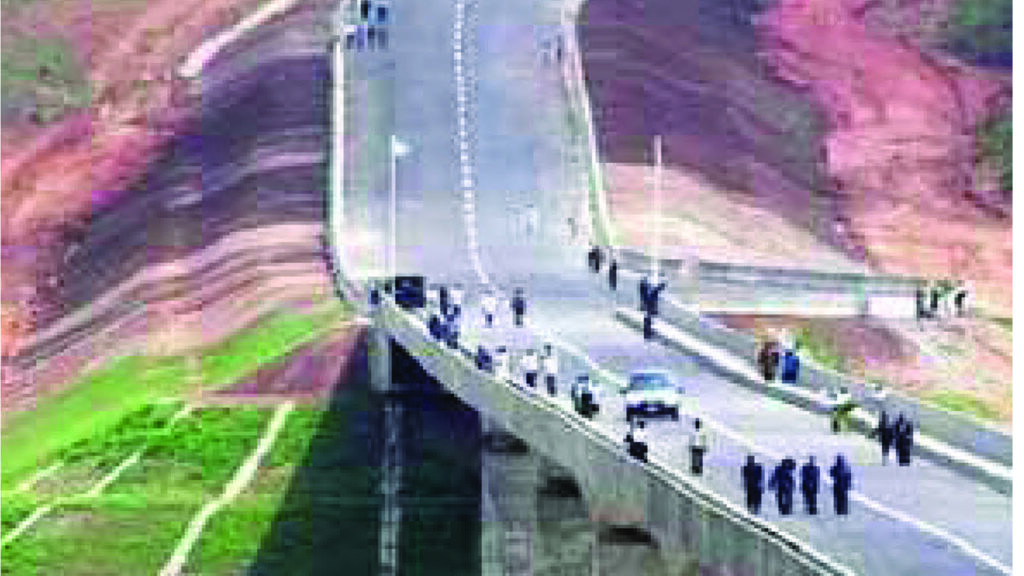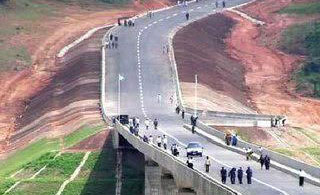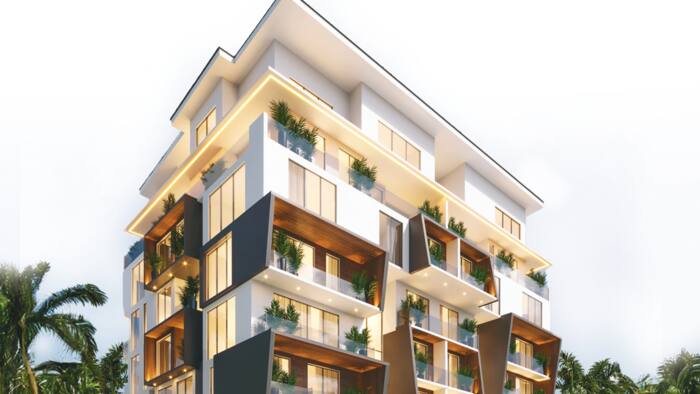
ONE of the most visible evidence of governor Babatunde Fashola’s administration, which has continued to attract both local and international commendations for Lagos State, is the tree planting, landscaping and beautification projects. Engineered in line with the environmental vision of a flood free, hygienic and beautiful Lagos, as encapsulated in the 10-point agenda of this administration, the initiative is gradually changing the face of the state commonly referred to as Eko.
At the initial stage when the Lagos State government started the landscaping projects, it all seemed like a ‘waste’ to an average Lagosian, who is more concerned with how to get daily bread. Like an area boy puts it: “Why Fashola dey waste money to plant flower, na flower we go chop?”
Today, however, ‘Fashola’s flowers’ have tremendously improved the aesthetics of Lagos as the Centre of Excellence and also help in checking the effect of global warming on the environment.
A drive around the city, with all its splendid parks and gardens would reveal that they have contributed in no small measure to a greener, healthier and sustainable Lagos.
From Muri Okunola Park on Victoria Island, to Alausa Park in Ikeja, Kernel Street in Surulere to Alao Bashorun Park, Gbagada Phase 11, Heritage Park in Oshodi, MKO Abiola Gardens in Ojota, as well as the Gani Fawehinmi Garden also in Ojota, the impact is easily felt.
Surely, you must have seen the Palmgrove and Onipanu Gardens on Ikorodu Road, the Airport Road Garden, Obalende, Tinubu Square on Lagos Island, Costain Garden and Ijora Garden among others. All of these have really improved these places from what they used to be.
The most impressive of all these are the vacant spots, which used to lie fallow or served as havens for miscreants and touts until they were cleared up to pave way for some of these gardens and parks. This, in a way has also highlighted the fact that the initiative has helped to secure the city.
“I’m impressed with what the government did with the gardens and parks in Lagos; that’s how it used to be in the old Lagos. Today, people just build houses anyhow, without considering the aesthetics of the environment. When you look at the Lagos Master Plan, you will discover that most lands set aside for gardens and parks have all been used for one project or the other. Anthony Village is a good example. It will be interesting to know what the government is doing about these stolen lands,” said Taiwo Adebayo, a resident of Surulere, Lagos.
Mike Okafor, a Lagos-based businessman, looks at the development from another angle. Aside from beautifying the environment, he says the parks have also provided job opportunities for Lagosians.
“Almost on a daily basis, you see people clearing, cleaning and watering the gardens and parks. I was also told that the boys, who handled the landscaping, were picked off the street by the state government and trained for this purpose, which is very commendable. The problem with Nigeria is that we’ve politicised everything; people now find it difficult to trust their leaders,” he said.
But, in a bid to make the entire green scheme, the Lagos State government established the Lagos State Parks and Gardens Agency (LASPARK), in accordance with the Lagos State Parks and Gardens vide Law 13, 2011. The goal of the Agency is to implement the greening policy of the state government towards the restoration of the lost glory of old Lagos, which was noted for its green ambience and also to re-awaken the consciousness of the indigenes to the importance of a ‘greened’ environment.
In 2008, Lagos State Ministry of the Environment commenced an aggressive tree planting campaign to complement the beautification and landscaping programmes of its Conservation and Ecology Department, whose efforts had recorded some modest achievement. Tagged, ‘Operation Green Lagos’, the project is anchored on the policy thrust of the present administration of economic sustainability through infrastructural renewal and poverty alleviation.
Aside the aesthetics, the greening initiative was a deliberate effort to mitigate the effect of climate change, protect our future and save the environment. There is no doubt that the global warming is real and the effect of extreme weather conditions around the world has drawn a wakeup call. Thus, Lagos and, indeed Nigeria, is no exception to its negative impact.
Currently, the state has over 232 landscaped and beautified sites, inclusive of those sponsored by private concerns. However, the agency categorises the parks and gardens into three: Scenic Parks/Gardens, Public Events Parks/Gardens and Community Parks/Gardens.
While the Scenic parks and gardens, such as the Dolphin Park, Palmgrove and Onipanu Gardens, are designed mainly for appreciation, admiration and enhancement of the aesthetics of the environment, Public Events Parks are open for public use such as relaxation, recreation and exhibition. Parks under this category include the Muri Okunola Park, which has become the home of Lagos Jazz Series; Freedom Park, which has become home for the arts following the ‘collapse’ of the National Theatre; Alausa Park and others. On the other hand, there are Community Parks, which after completion, were handed over to the community for usage and maintenance. In this category are Kernel Street, Surulere, Alao Aka Bashorun Park and Gbagada Phase II among others.
To ensure that the parks and gardens serve their purposes, LASPARK came up with rules and stipulated fines for offenders. But whether these rules are strictly adhered to or not is another matter entirely.
For instance, felling or pruning of trees without permission from the Agency and walking on lawn and gardens instead of designated walkways are punishable offences. Spitting, urinating or defecating in any area of the parks, loitering, soliciting for illegal purposes, smoking and distributing control substances or engaging in disorderly conduct are also not allowed.
Also considered as an offence is littering, polluting or dumping of refuse in any park or garden, failing to control animals or allowing animal defecation, engaging in unhygienic use of fountains pools or water in the parks, gardens and open spaces and violating other rules made pursuant to this law, according to the agency, is liable on conviction to a fine or imprisonment.
For now, these rules seem to be active only on paper.
Of major concern to Lagosians is lack of parking spaces in most of the gardens and parks. This makes it difficult to use the parks. And from the way some of them were constructed, it appears they are meant for pedestrians.
Besides, people are unsure of how secured these parks and gardens are. Therefore, efforts should be made by the relevant agencies to ensure that the parks are illuminated at night, with security presence.










